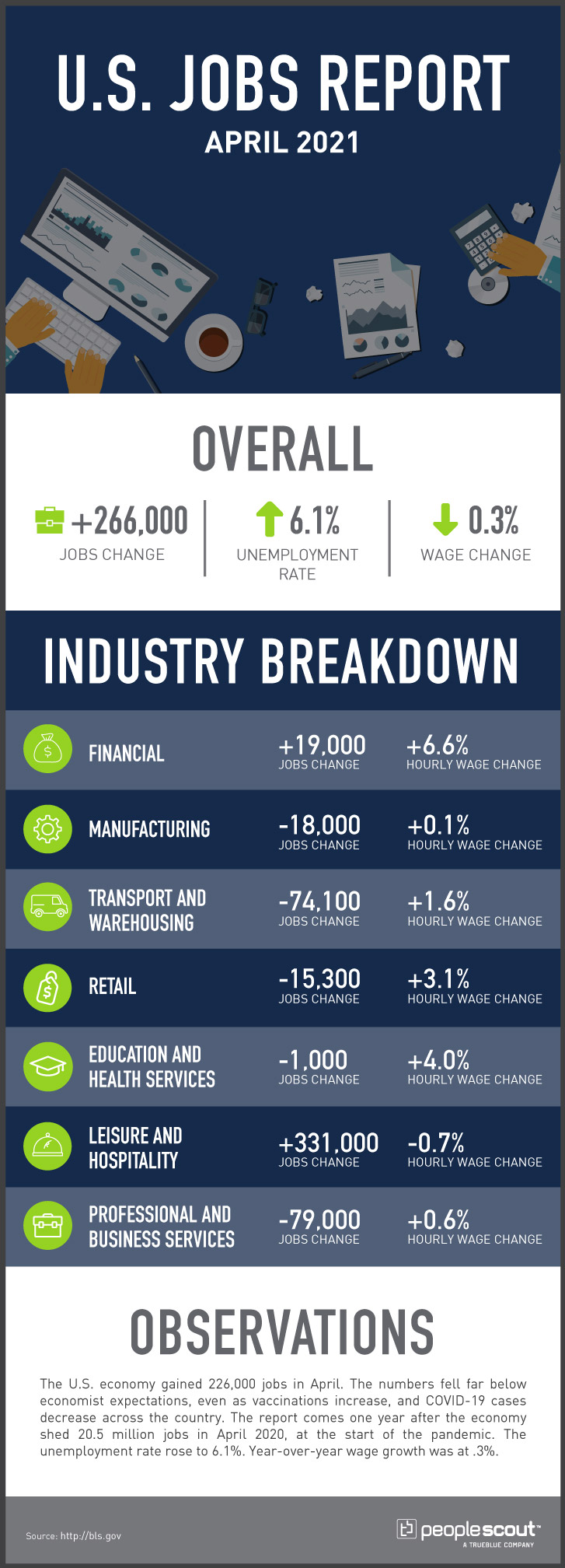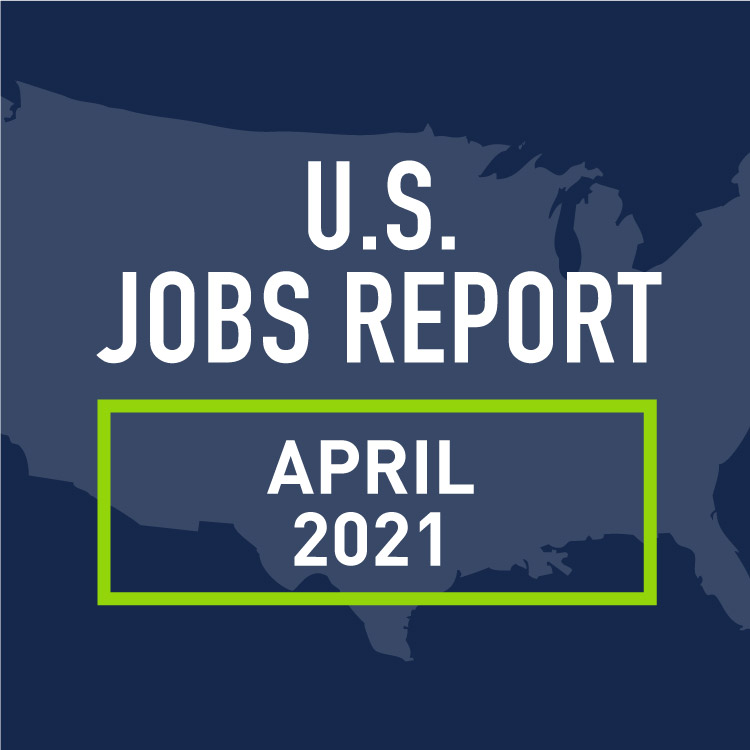The U.S. economy gained 226,000 jobs in April. The numbers fell far below economist expectations, even as vaccinations increase, and COVID-19 cases decrease across the country. The report comes one year after the economy shed 20.5 million jobs in April 2020, at the start of the pandemic. The unemployment rate rose to 6.1%. Year-over-year wage growth was at .3%.

The Numbers
+266,000: Employers added 266,000 jobs to the U.S. economy in April.
6.1%: The unemployment rate rose to 6.1%
.3%: Wages rose just .3% over the past year.
The Good
April’s jobs report was largely disappointing. As the New York Times reports, economists had expected job growth as high as one million. However, there are a few bright points. leisure and hospitality, the sector hit hardest by the pandemic, led job growth with 331,000 new jobs. Additionally, labor force participation increased to 61.7% in April, marking the second straight month of growth, and suggesting that more Americans are reentering the workforce.
The Bad
Despite COVID-19 numbers trending positively, the Wall Street Journal reports that many employers are still cautious about ramping up hiring. Additionally, sectors that grew during the pandemic saw some job losses in April, including temporary work and transportation and warehousing. Manufacturing shed 18,000 jobs due to supply chain issues in the auto industry.
Additionally, year-over-year wage growth fell sharply in April, however these numbers come exactly one year after more than 20 million jobs were lost. At that point, wage growth increased drastically, as higher wage workers were more likely to retain their jobs, while lower wage workers were more likely to experience layoffs. That shift caused the average wage to rise, and the trend will impact wage growth numbers for months to come.
The Unknown
Economists disagree on the cause of April’s disappointing report. According to NBC, Treasury Secretary Janet Yellen ascribes the low numbers to the volatility of a recovering economy. Others have argued that enhanced unemployment benefits may be keeping some people at home, while yet another group argues those benefits have been necessary to keeping food on the table for many families. The New York Times reports a more complicated story, particularly in the restaurant industry, as some workers look to change careers for more stable industries, or express health and safety concerns.




